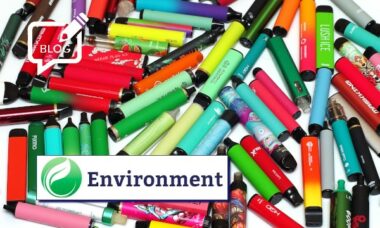 Is nicotine inherently bad for you? OK, it’s controversial, but the answer we’re sticking to is ‘no’, or at least ‘not very’. Except in the crucial sense that it’s addictive (though how much of that is physical and how much socially conditioned and psychological is also controversial).
Is nicotine inherently bad for you? OK, it’s controversial, but the answer we’re sticking to is ‘no’, or at least ‘not very’. Except in the crucial sense that it’s addictive (though how much of that is physical and how much socially conditioned and psychological is also controversial).
It’s the addictive quality that has made generations of smokers worldwide inhale closely the smoke from burning tobacco. Very bad for you.
And there’s a fear that the same quality is now leading at least one generation to persist in using e-cigarettes. Which may not be terribly bad for their health (let’s discount now the canard that vaping “leads to smoking”) but is decidedly not good for the health of the environment.
The rapid rise and rise of disposable vapes, their ready availability and their enthusiastic take-up by the young, has rattled a lot of cages.
There are growing calls for disposables to be banned, partly on “save the children” grounds, but mostly and more plausibly on account of environmental concerns.
The case against disposables
As the BBC reported this week, the organisation that represents local councils across England and Wales has joined the chorus, already heard loudly in Scotland, demanding that all sales of single-use e-cigs should be banned “by 2024”.
It’s a litter issue, it’s a landfill issue, it’s a fire issue, perhaps most importantly it’s a finite resources issue.
The case against disposables has never been better put than in the introduction to a report issued in the US last week by the student-funded Public Interest Research Group (PIRG) Education Fund, also calling for a ban.
It begins: “Nothing used for a day or two should pollute our environment for hundreds of years. While we know about the waste from single-use plastics, disposable electronics are often overlooked. It offends common sense to routinely junk some of the most intricately complex objects humans have learned to produce with their layers of integrated circuits, scarce and toxic metals, and world-spanning supply chains.”
And it continues: “One product stands apart as being particularly harmful to our environment and public health – disposable vapes…this report aims to understand their effects as hazardous electronic waste. It doesn’t make any sense to manufacture electronics with rechargeable batteries, ship them across the world, and throw them out within a few days.”
The recycling red herring
The report has no truck with the view of vaping advocates such as John Dunne, director general of the UK Vaping Industry Association, who told the BBC: “This is mainly a consumer education issue about how to dispose of used vapes, which overall are evidenced to be highly recyclable.”
The PIRG insists plainly, with evidence from the UN among others to back it up: “We can’t recycle our way out.”
Interestingly, it is explicit in laying blame for the surge in disposables at the feet of the US Food and Drug Administration (FDA).
It accuses the agency of a “sin of omission” early in 2020, when it began its policy of removing most flavoured e-liquid cartridges from the market but left disposables untouched. The inevitable result was an explosion in sales of disposables, which according to the PIRG almost trebled between February 2020 and March this year, and now account for over half of all US e-cig sales.
And that, it’s fair to say, adds up to an assault not only on the environment but also on all the makers and dealers in vaping products that are non-disposable and not available in every corner shop.
– Aidan Semmens ECigIntelligence staff
Photo: Wikimedia Commons






